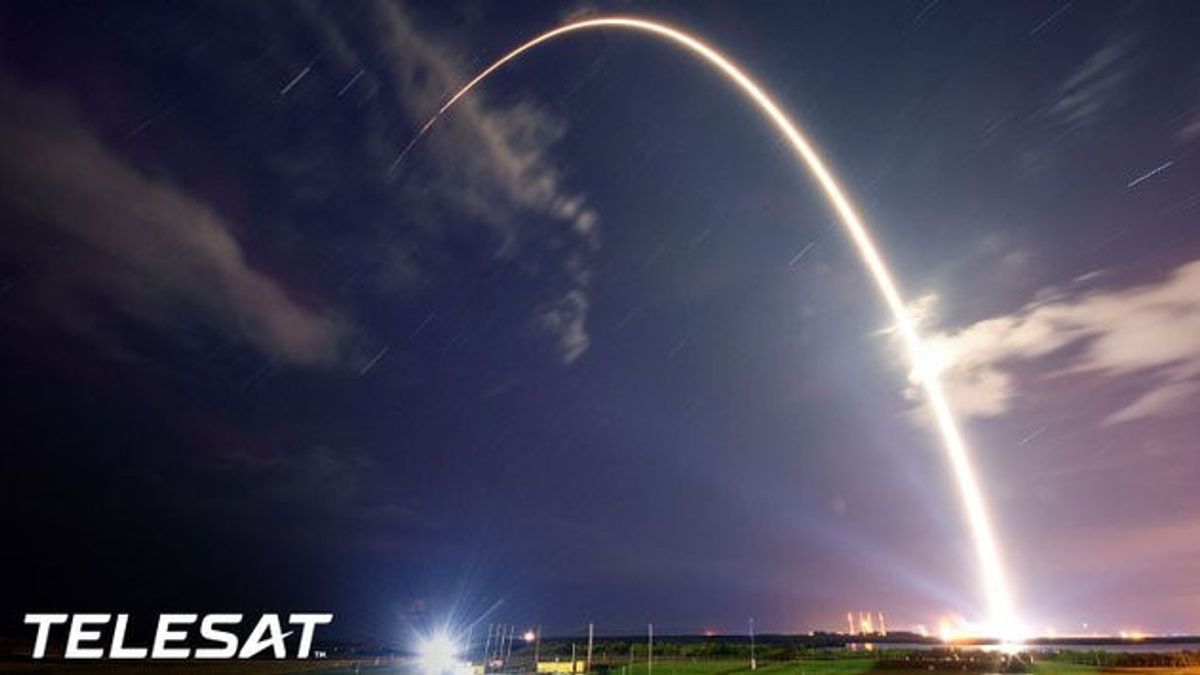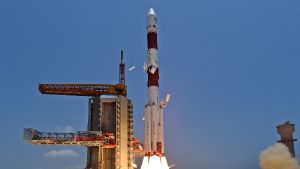JAKARTA - Canada's Telesat announced on Monday, September 11 that it had reached an agreement with SpaceX to launch their LEO (Low Earth Orbit) satellite starting in 2026. The Canadian government wants to provide global broadband services from space by the end of 2027.
The LEO satellite operates 36 times closer to Earth than traditional satellites, so it takes a shorter time to send and receive information, which produces better and faster broadband services even in remote areas.
Telesat CEO, Dan Goldberg, said that they chose Elon Musk's SpaceX because the company has "the best combination between price, performance, reliability, and the right schedule."
"SpaceX has become a trusted and effective launch provider for Telesat in their geosynchronous satellite program, and I am very pleased that they will support us with a highly reliable Falcon 9 rocket to deploy the constellation Telesat Lightspeed, the most ambitious program in the history of the 54 years Telesat," said Dan Goldberg, President and CEO of Telesat.com, quoted from the Telesat. page.
"With the dedication and professionalism of the SpaceX team, as well as the extraordinary reliability record and high launch reserves, I have full confidence that they will become extraordinary partners in helping us deliver the Lightspeed Telesat in services in a timely and low-risk manner," added Golberg.
No stated value for this contract, which includes 14 launches. Each Falcon 9 rocket will carry up to 18 satellites into orbit, so this constellation will be ready to be implemented by the end of 2027 when Telesat plans to provide global services.
VOIR éGALEMENT:
"With the increasing demand for high-speed internet around the world, SpaceX is proud to launch and deploy the constellation Lightspeed Telesat," said Gwynne Shotwell, President and Chief Operating Officer of SpaceX. "Developing our successful launch partnership to date, we look forward to bringing Telesat once again when they expand connectivity capabilities for their customers around the world.
Telesat will enter a competitive market with the aim of serving corporate customers, including cellular operators, governments, airlines, and shipping.
Most competitors in the LEO satellite market focus on the consumer market. Amazon in 2022 is getting the largest commercial launch deal in history for 83 missions through several launch companies to deploy its Kuiper network. SpaceX plans to nearly double its annual launch rate by 2023 thanks to its fast-growing constellation Starlink.
The English, Chinese, Japanese, Arabic, and French versions are automatically generated by the AI. So there may still be inaccuracies in translating, please always see Indonesian as our main language. (system supported by DigitalSiber.id)


















